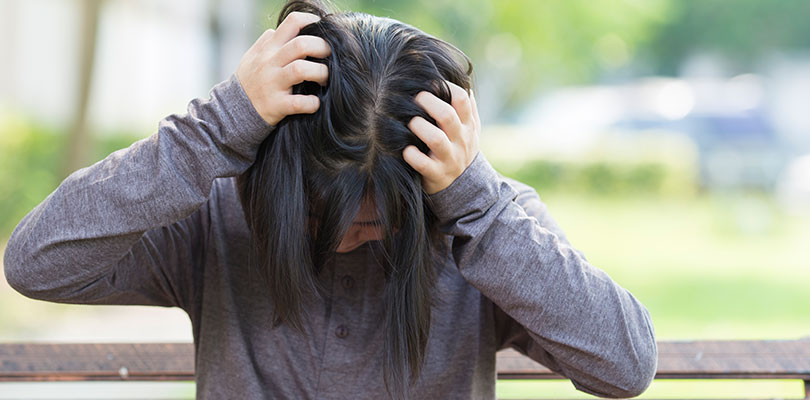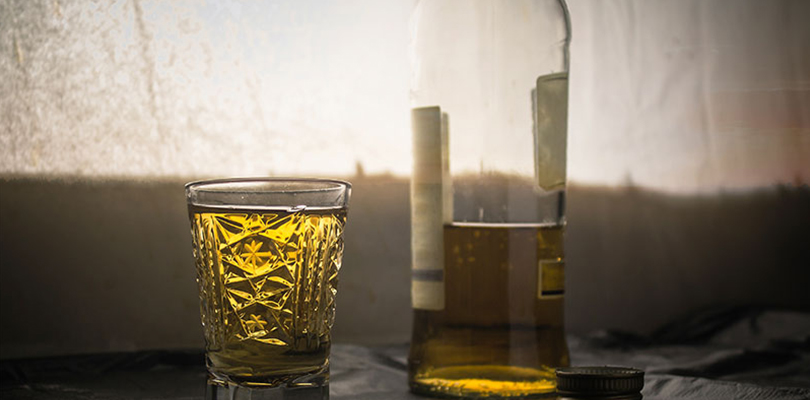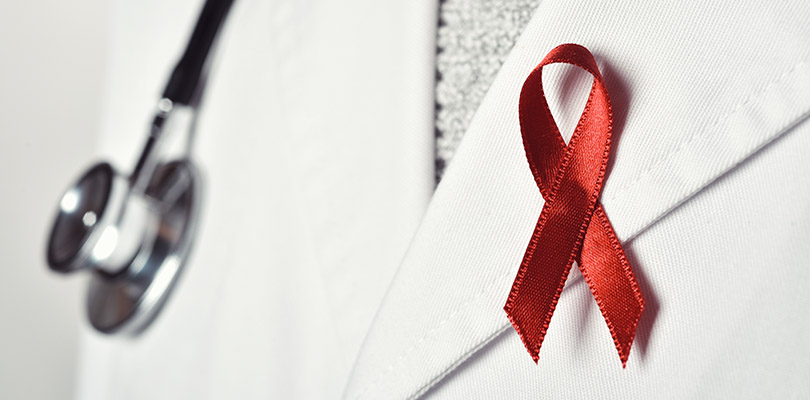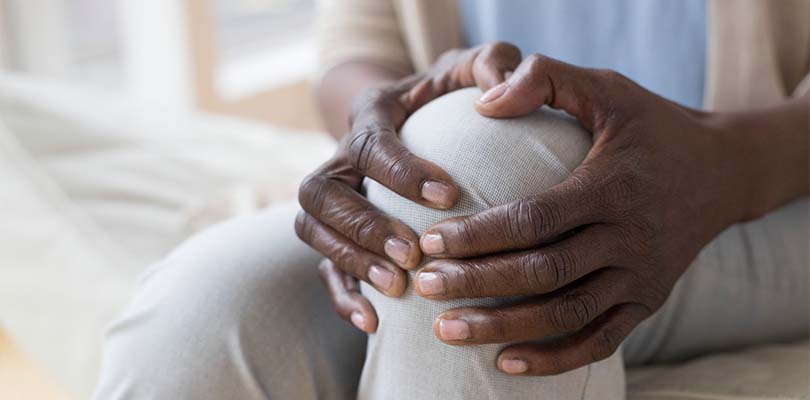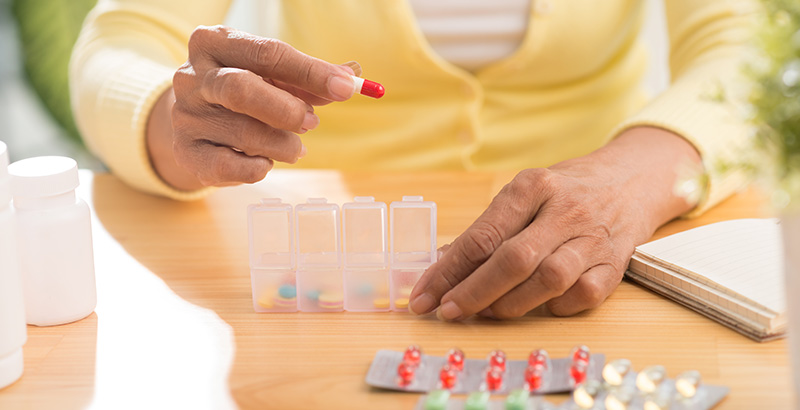Photo Credit: champja / iStockPhoto.com
What Causes Dandruff and What You Can Do About It
Dandruff is one of those conditions that is as common as it is embarrassing. Experts estimate that more than half the population has dandruff, to some degree. While it can be difficult to pin down the precise cause in each case, one fact is well-known: dandruff is the consequence of too many skin cells on the scalp.
Your skin is constantly renewing itself, and the old bits have to go somewhere. Typically, these dead skin cells fall from your scalp and out of your hair through regular washing and brushing, and no one is the wiser. However, when the skin cells have a chance to build up, white flakes can start to make a regular appearance.
The key to dealing with your dandruff is figuring out what’s speeding up your natural skin renewal cycle. In many cases, it’s simply dry skin, but there are several other possible causes that might require different treatment approaches.
The Truth About Dandruff
Dandruff can look alarming, but looks can be deceiving. There are a couple of key points to keep in mind when you see those first flakes fall.
It’s Not Contagious
Dandruff can appear dirty or infectious, especially when it gets out of control — and onto your clothing and furniture. However, dandruff is not an illness, and can’t be passed from person to person.
That said, it can be pretty embarrassing when your dandruff flakes find their way over someone else’s sleeve.
It’s Not Alive
Little white specks in your hair can drum up nightmarish visions of lice infestations, but rest assured, your dandruff has no mind or motive of its own. Dandruff flakes are dead skin cells that have simply fallen off your scalp, not living organisms.
It Can Point to a Deeper Problem
A few dry patches are probably nothing to worry about, but long-lasting dandruff can be a sign of another illness. Chronic flaking skin conditions like psoriasis and eczema tend to cause dandruff, and those with weak immune systems are more prone to flaky scalp.
In rare cases, dandruff can be an early sign of a neurological or cardiovascular illness.
Should You Be Worried?
Any sudden change in or on your body can be cause for concern, so it’s natural to worry. However, in many cases, that worry is happily misplaced — there’s often a very reasonable, and very manageable, explanation for the change.
When your scalp starts to flake all of a sudden, you might be able to blame it on:
Wintery Weather
Cold, dry weather saps moisture from your skin, as you can tell from your chapped lips and cracked hands. Even though your hair tries it best to protect your head from the elements, your scalp can suffer the effects of the cold, too.
So, if you notice itchy, dry patches of skin around your body, you might also begin to see the same on your head.
You can go to any number of websites for signs of a drinking problem but many of these symptoms can be divided into a few clear patterns.
Skipping a Shampoo or Two
Since excess oil can lead to excess skin cells, going too long without a shampoo could leave a layer of build-up that will flake off as you comb or scratch your scalp. Using a gentle shampoo each day should keep build-up to a minimum, though be sure you don’t shampoo too often — you might end up drying out your scalp, which can also cause it to flake.
Stressful Times
Stress can bring a number of discomforts to your mind and body, including skin problems. Just as emotional stress is a top trigger for psoriasis flares, it might lead to imbalances in your natural skin renewal cycle, leaving you with a flaking scalp.
Trying New (or More) Hair Products
Many hair gels, sprays, waxes and serums are loaded with chemicals that may do wonders for your hair, but not much for your skin. The gunk can build up and will inevitably flake off when you brush your hair, scratch your head, or disrupt your scalp in any other way.
Too Much Yeast
Some people are more sensitive to yeast than others, and they may experience dandruff when yeast accumulates on the scalp. If you find your dandruff is better in the warmer months but worse during the winter, yeast may be to blame (UVA rays tend to combat yeast, and they are much stronger in the summer).
Your Malassezia Is out of Control
Almost everyone has a harmless fungus called malassezia living on their scalp, and usually it’s completely undetectable. But in some cases it proliferates, causing irritation and boosting skin cell production, and that extra skin (combined with your natural oil secretions) sloughs off in the form of dandruff.
In some cases, a dandruff outbreak can be traced to a more invasive problem. Seborrheic dermatitis causes an uncommonly oily, irritated scalp that results in dandruff, and it can be a bit trickier to remedy than your shampoo routine.
If you notice red, flaky skin on the back of your ears, eyebrows, breastbone, or sides of the nose along with your dandruff, you might have seborrheic dermatitis, and you should see a doctor about a diagnosis.
Very rarely, seborrheic dermatitis is tied to Parkinson’s disease or HIV (one study found that over 10 percent of people with HIV suffer from this skin condition). If your dandruff comes on strong and won’t go away, consult with your doctor right away to investigate further.
What You Can Do About Your Dandruff
Dandruff is annoying, but it tends to respond pretty well to specialized products. Anti-dandruff and anti-fungal shampoos can improve your scalp health almost overnight, but be sure to take a close look at the bottles before you buy.
Ingredients such as zinc pyrithione, selenium sulphide, salicylic acid, and tea-tree oil can help to slow the production of natural oils, fight off fungus, and help to slough off skin cells faster. You won’t find a single shampoo with all these ingredients; choose a brand with one active anti-dandruff ingredient, and if after a few weeks of use you don’t see improvement, choose another type of product with a different ingredient.
Whichever anti-dandruff product you choose, be sure to leave it on your scalp for a few minutes before you rinse it off.
While it’s true you need to treat your hair and scalp well from the outside, what you take into your body can also have a positive effect on your dandruff. Diet plays a big role in whole-body health, and you’re bound to notice some unsavory skin symptoms if you’re missing out on certain nutrients.
Some experts suggest that your scalp health rests largely on zinc, B vitamins and healthy fats, so if you’re eating a limited menu for weight loss or another health goal, it may be time to revisit and rebalance your diet.
